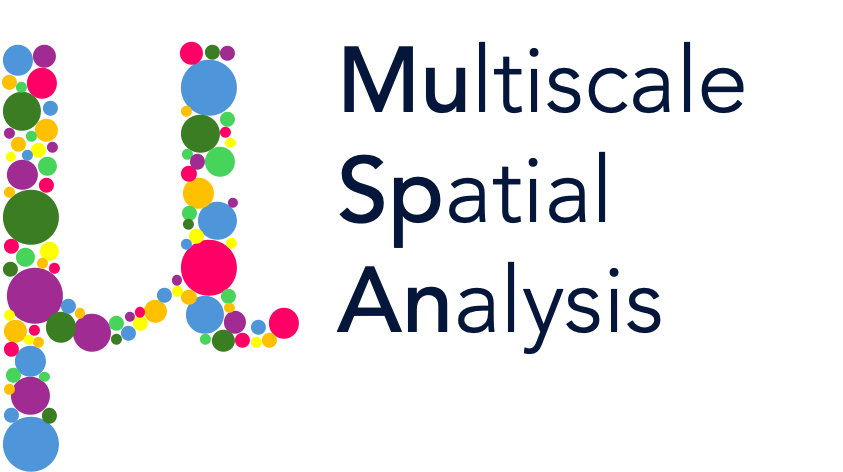get_minimum_distances_centroids#
- get_minimum_distances_centroids(domain, population_A, population_B, include_boundaries=None, exclude_boundaries=None, boundary_exclude_distance=0, bypass_checks=False)#
Calculates the smallest distance from each object specified by objects_identifier_A to an object specified by objects_identifier_B.
Be aware, this function uses the centroid of each object - for shapes, this will be the shape centroid, not the boundary of the shape.
- Parameters:
- domainmuspan.domain
A muspan domain.
- population_Aquery-like
The first population of objects or a query to select them.
- population_Bquery-like
The second population of objects or a query to select them.
- include_boundariesarray-like, query-like, or None, optional
Boundaries used to filter the populations for analysis; objects outside include_boundaries will be excluded. Defaults to None, which includes the entire domain.
- exclude_boundariesarray-like, query-like, or None, optional
Boundaries used to filter populations to exclude from the analysis; objects inside exclude_boundaries will be excluded. Defaults to None.
- boundary_exclude_distancefloat, optional
Buffer to exclude objects located within boundary_exclude_distance from the boundaries. Defaults to 0.
- bypass_checksbool, optional
If True, standard checks on whether the queries can be interpreted are bypassed. May generate unexpected crashes if objects that can’t be interpreted as a query are passed in, but generates a substantial speed increase for large datasets when we’re confident the query is formatted correctly. Defaults to False.
- Returns:
- distance_arraynumpy.ndarray
Array containing minimum distances from each object in object_indices_A to an object centroid specified in objects_identifier_B.
- object_indices_Anumpy.ndarray
Array containing object indices specified by objects_identifier_A.
- nearest_Bnumpy.ndarray
Array containing object indices of the nearest object in objects_identifier_B for each object in object_indices_A.
- centroids_Anumpy.ndarray
Array of centroids for objects in object_indices_A.
- centroids_Bnumpy.ndarray
Array of centroids for objects in object_indices_B.
